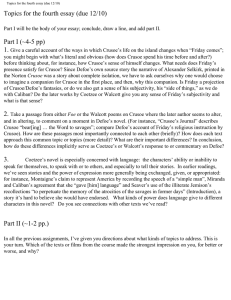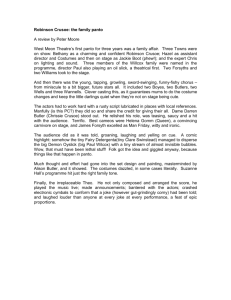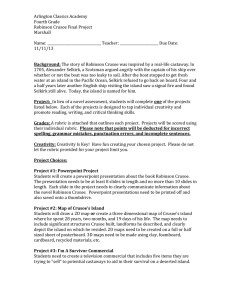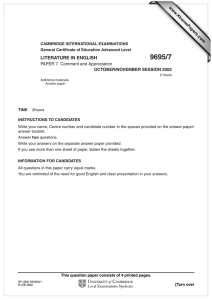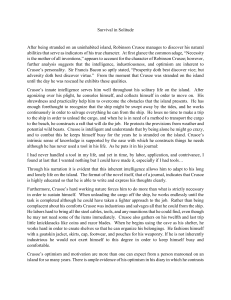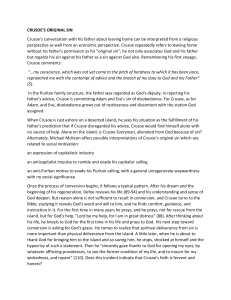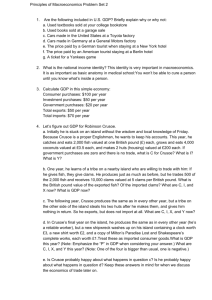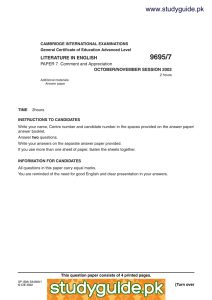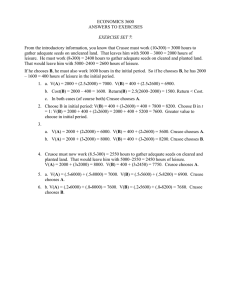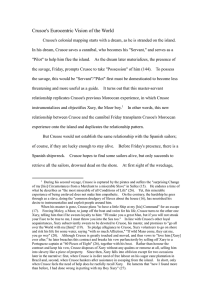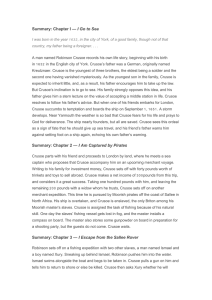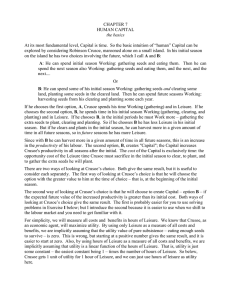Derek Walcott Omeros
advertisement
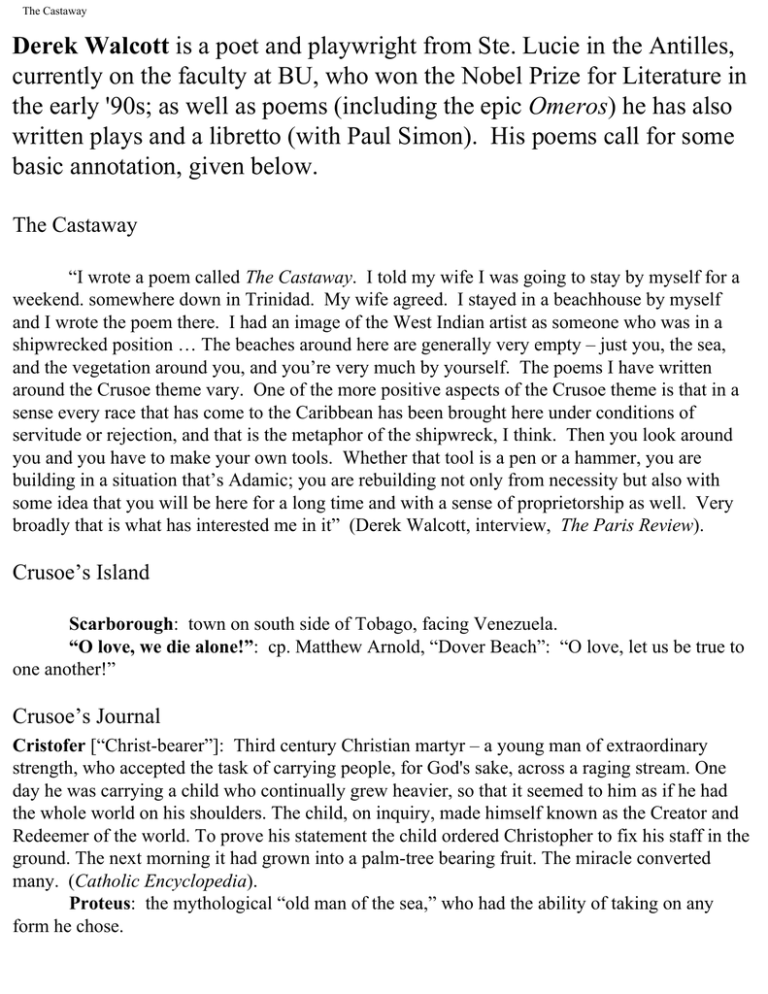
The Castaway Derek Walcott is a poet and playwright from Ste. Lucie in the Antilles, currently on the faculty at BU, who won the Nobel Prize for Literature in the early '90s; as well as poems (including the epic Omeros) he has also written plays and a libretto (with Paul Simon). His poems call for some basic annotation, given below. The Castaway “I wrote a poem called The Castaway. I told my wife I was going to stay by myself for a weekend. somewhere down in Trinidad. My wife agreed. I stayed in a beachhouse by myself and I wrote the poem there. I had an image of the West Indian artist as someone who was in a shipwrecked position … The beaches around here are generally very empty – just you, the sea, and the vegetation around you, and you’re very much by yourself. The poems I have written around the Crusoe theme vary. One of the more positive aspects of the Crusoe theme is that in a sense every race that has come to the Caribbean has been brought here under conditions of servitude or rejection, and that is the metaphor of the shipwreck, I think. Then you look around you and you have to make your own tools. Whether that tool is a pen or a hammer, you are building in a situation that’s Adamic; you are rebuilding not only from necessity but also with some idea that you will be here for a long time and with a sense of proprietorship as well. Very broadly that is what has interested me in it” (Derek Walcott, interview, The Paris Review). Crusoe’s Island Scarborough: town on south side of Tobago, facing Venezuela. “O love, we die alone!”: cp. Matthew Arnold, “Dover Beach”: “O love, let us be true to one another!” Crusoe’s Journal Cristofer [“Christ-bearer”]: Third century Christian martyr – a young man of extraordinary strength, who accepted the task of carrying people, for God's sake, across a raging stream. One day he was carrying a child who continually grew heavier, so that it seemed to him as if he had the whole world on his shoulders. The child, on inquiry, made himself known as the Creator and Redeemer of the world. To prove his statement the child ordered Christopher to fix his staff in the ground. The next morning it had grown into a palm-tree bearing fruit. The miracle converted many. (Catholic Encyclopedia). Proteus: the mythological “old man of the sea,” who had the ability of taking on any form he chose. The Castaway R[obert] L[ouis] S[tevenson]: author of Treasure Island, set in the West Indies [Frederick] Marryat, 1792-1848 and [G.A.] Henry, 1832-1902: authors of adventure novels for children. “Henty's gifts as a narrator are derived from his ability to tell a story full of incident. He used a characteristic formula in his fiction--choosing as the protagonist a young boy who is of middle-class origin, often orphaned, and with no great expectations of estate or fame. This character is typically fourteen to sixteen years of age, physically brave, naturally courteous, intuitively honorable, farsighted, and quick acting.,,, Henty places this protagonist in a historical situation (usually of military significance), where he then becomes closely associated with the principal British authority and rises to the position of trusted assistant and adviser. His progress involves adventures by sea, capture by brigands, several amazing escapes, unexpected assistance from the local population (including a friendship with a young native boy his own age), a share in the inevitable material spoils of conquest, and finally a return to London to receive the grateful thanks of the government. (Dictionary of Literary Biography)
